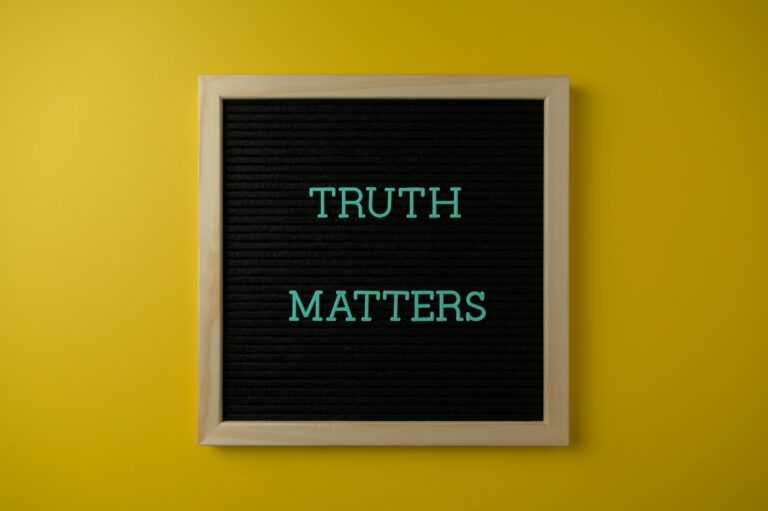The first time someone I loved died, I had cried in an auto rickshaw when there were a few hundred rupees in my bank account and the second time I lost someone, I had cried in a BMW car with thousands of dollars in my account.
What I can say with confidence is that the wail was of the same pitch, the tears were just as salty and the darkness just as hollow. That dark vacuum does not go away any faster with or without money. The grief of losing a loved one leaves a dark hole in your heart which will never truly go away but you learn to build things around it. You do this so that you don’t get pulled in by the gravity of that hole and collapse. But that gravity will always exist. You just learn ways to resist it. To build things around it so that you can distance yourself as far as you can from it. But you can never bury it. Never completely heal it and that’s ok! I wonder now how money plays a role in it.
I must say though, that there are differences in which money can play a role in how I built these casings around me. When you are struggling financially to make ends meet, your hunger and self respect can help fuel your desire to speeden up the grieving process. “I don’t have time to wallow in self pity”, I told myself then. The empty stomach and the instability of the future did help me build those casings around that hole. I remember finding some conversations with friends who had so much but were complaining and worrying about some mundane necessities like finding a clean toilet or the traffic being too much on their way to office just plain excruciating. But I learned to live through these conversations. Smiled and said “True that!”, for what can I say, I might have complained about the same thing too. Who knows!
I always had disagreements with dad on why we show to the world like we have a lot of money by driving an expensive car or living in a posh locality and dress smartly when he was struggling to pay our school fees. Why can’t we downsize and live a life we can afford? “No”, he said. “That is not the mentality of successful people.” I think back now that he just didn’t want to feel humiliated by the words and eyes of friends and family around him. This ego can be a burden to bear and if left too long on our shoulders, can wear us down.
The constant pressure to be successful, to look like we know what we are doing, to constantly justify our actions by buying more things and buying things to show to the world that we are successful can wear you down to the bone. My mom tells me now that 10 days before my dad’s suicide, when mom asked for money to buy chicken to make curry for us since it had been a while since we had non-veg, my dad said that he will sell his phone to buy that chicken for us. And he did. He put all he had and some more on his dreams, thinking he would give us and himself a great life. A life which he thought we needed to “fit” in to this world. To prove to ourselves that we are worthy to be alive in a society that contains us. But we must remember that sometimes it might be hard to see what we are risking. We get caught up in the illusion that money can create and forget our logic and reason. Money has this extraordinary power to both diminish or exaggerate our ideas and capabilities.
It can make us feel worthless or powerful, smart or dumb, scared or brave. It can make our desires seem unreachable or feel like they are right at the tip of our grasp.
After my dad died, I made a vow to downsize our lives. Found a 6000 Rs rent house near the main road to make travel more affordable with the help of my dad’s friend. I sold all the furniture and tried to make as much money as I can from it. All my dad’s clothes, computers, office furniture, his enormous compilation of documents and CDs. I sold. Trying to convert possessions into money for us to survive. Everytime I found something that held a beautiful memory of him, I had to gather myself and think of my mom and sister, to see if I could get some money out of it. People talk of hell, but my own hell in this world was to sit and weigh an item to see if it held more value as money or as a loved one’s memory.. I still remember those few days, when I sat among all the remnants of loved one’s life and to selectively chose which one is of value and which one can be thrown away or sold for money. I felt like a thief, a scavenger.
10 years later, when I had to do the same as I went through my sister’s things, I remembered that memory and laughed and cried at the same time. How funny! This time I went through hundreds of architectural drawings, pens, paint, collections, demos, clothes, I thought of how we spend years of our lives trying to make something of ourselves, only to leave all those things behind. This time too, I searched to see which of her things were valuable. I threw out all the hundreds of drawings that she kept safely from her 7th Grade, her memories, her collection of perfume bottles.. I segregated her things with the help of my husband and a cousin sister for three days. I asked them to make piles of party things, valuable trinkets, makeup and paint supplies that can be given to my other cousin sisters and to make a pile that can be donated to charity. This time again I had to weigh money and memory. This time I didn’t need to sell it to make money from it. I just had to see if it was worthy to someone. 25 boxes of things were made. Some boxes, I sent to my cousins, some to an orphanage and I picked up three things as her memory. It took 27 years to accumulate and create these possessions, 3 days to segregate and 3 hours to throw away years of hard work. As i carried them out of the apartment in which she took her life, I looked at the empty rooms. Lifeless, just like her body was. I write this a year after I did this, and I remember both those houses. Clear as a picture. Empty cupboards. Empty walls. Empty future.
But life goes on. Just like it did when my dad died. After he died, for 5 months, we lived with my mom’s brother. They graciously hosted us and treated us well. 5 months later, they decided to move to another state for they had problems on their own too. So, we went to a new rented house. My dad’s friends pooled in enough money to pay for my sister’s first three years of college fees, which we were so grateful for. But the other bills and necessities remained. Electricity bill, water bill, groceries, clothes, food, repairs, internet, college supplies, transport.. The list was endless. As years went by and as my mom and I were working, making money so we can make happiness, I remembered the “Marginal Utility of Money” which I read about some time back.
The more money I was making the more we were happier. But to a point really. 6000/Month income (taking tuitions) to 13,000/month (Infosys training) , to 30,000/month (Infosys), 80,000/month (Deloitte). It was funny how the more I earned just meant that we were buying more. TV, washing machine, a new IKEA table. I had more to be grateful for.
Here I am now after clearing my 50,000 dollar masters loan 10 years later, earning well working at Amazon as a senior software developer. Bought a car. Travelled to new places. Buying coffee, just because I can. Saving enough money that if I lose my job, I would have enough to survive for three months. That seems stable enough. I thought. I felt rich even when people around me who had much more than me were complaining again! My dreams for the future increased as I hoped to buy a house with my husband.. Have kids and teach them this wisdom of money. But alas, fate had other plans.
Here I was pushed into grief again. This time I didn’t have an immediate need for money. I didn’t know what to do with the money I was saving for my sister’s future education and marriage. That drive to work slowly faded. What was the point, i thought. The second time of throwing away the belongings of a loved one, can make anyone question the very point of working hard.
I found it hard to concentrate to code at work and concentrate in meetings. I couldn’t believe that a younger 20 year old me had become a college EEE topper, just a year later my dad died. Was it really me, I thought. Why couldn’t the search of Money- which drove me then couldn’t drive me anymore. I had to find a reason to continue working. I had enough saved for my mom to survive on for 22 years. Would she live longer than that, I thought. Mmm.. So it would be enough for her. I don’t have any one else I was responsible for. No, I need to find another reason. What about the clothes, makeup, coffee, books, plants that I won’t be able to buy if I stopped working. No, thats not important enough anymore. So, I started a recurring donation to Shantinikethan- my favorite charitable organization. (Daughters of Destiny). Ha.. How Goody goody you might think. But grief can do that. Completely devalue the things you love. They won’t matter any more. Then, I noticed my will to listen to meetings increased. My brain slowly stopped fogging when I tried to code.. Slowly, I found happiness in buying something I really like for myself again. Interesting!
This is what I have noticed with my experience in life so far:
- If you have a lower income, more income probably will make you happier. Sharing it others and yourself might make you happier and drive you to work hard if channeled correctly.
- If you have a high income and are unhappy, more income probably won’t make you happier. Here, sharing it with others can bring meaning into your life and give you the drive to continue making money
- If you have a high income and are already happy, more income probably isn’t worth the effort. So, if you are hoping to be happier, making more money probably won’t help. You might want to use that time to do things you love to give you that happiness.
The definition of “high”, “low” income is specific to the place you live in and the people you surround yourself with. I have talked to people who thought 30,000 Rs/month was high income and some thought it was really low.
I will end this today by quoting the famous “Seneca” – “It is not the man who has too little, but the man who craves more, that is poor”




